One corner, 146 lines - what I learned watching the Tour de France peloton descend
Trying to learn from the best we find there's more than one way to take a corner at high speed
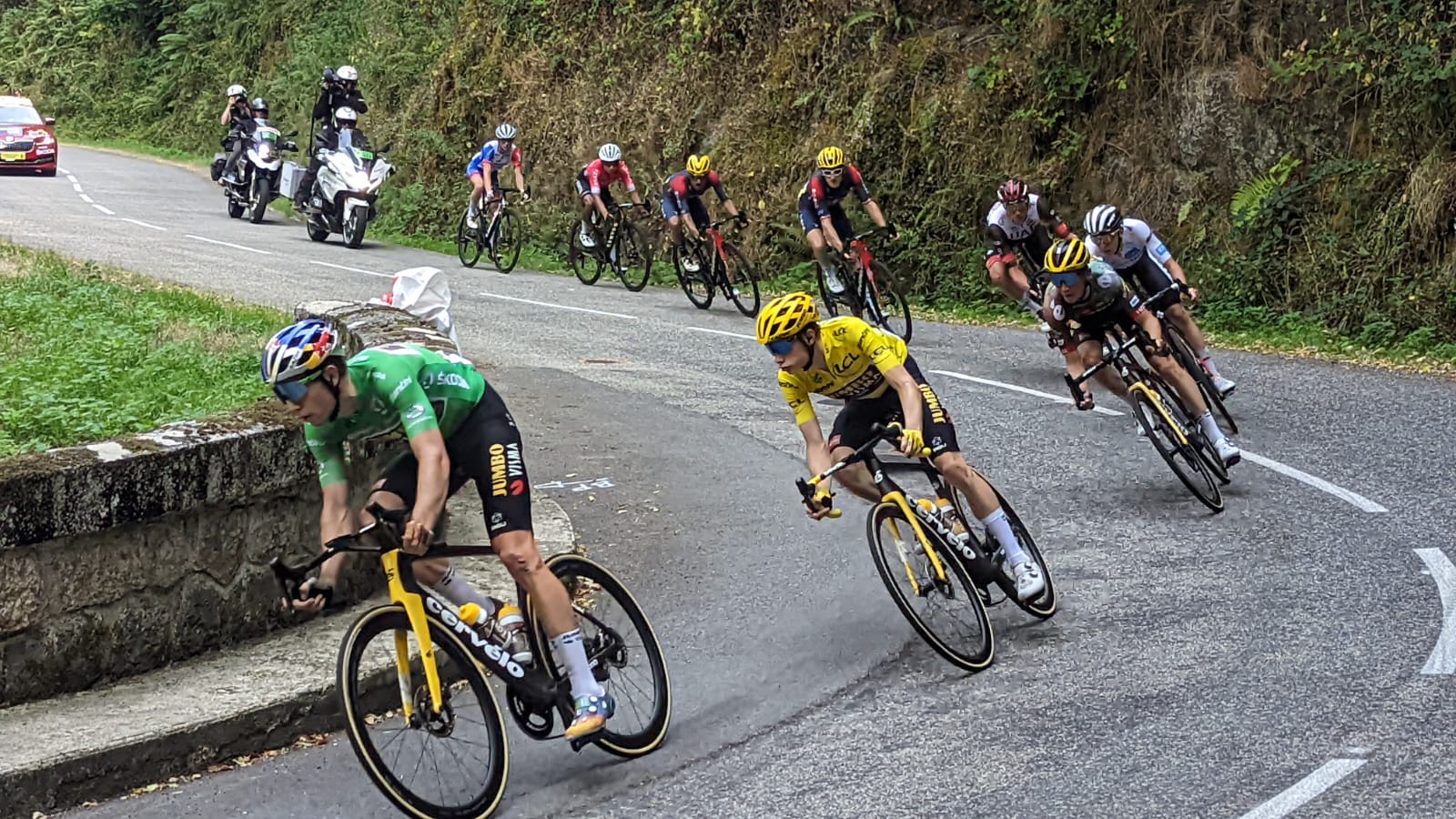
They say failure is the best teacher, I’m not sure Matteo Jorgenson would agree. On the evening of stage 16 of the Tour de France he was having his wounds scrubbed and dressed after kissing the tarmac with his hip descending the Mur de Péguère.
But that is part of the process of racing and cornering at high speed. The gradual increase in confidence brought to a stop suddenly and painfully, in Jorgenson’s case on the rough Pyrenean tarmac. “I wasn't thinking about much, I was trying to win the stage of the Tour de France… You know, if you take a few corners at faster speed and you brake a little less, you can pull back a couple of seconds per corner,” says the Movistar rider the next day of his ultimately doomed chase.
But that is part of the process of racing and cornering at high speed. The gradual increase in confidence brought to a stop suddenly and painfully, in Jorgenson’s case on the rough Pyrenean tarmac. But it’s the only way to learn, right? Well, perhaps not.
In an era of flag to finish coverage, descending maintains a degree of mythos. With riders scattered across a mountainside, limited cameras and the obvious difficulty of following a bike rider downhill at dizzying speeds, it’s difficult to compare and contrast different riders. We usually only see snapshots, most memorably when it goes wrong. Plus in a road race every every corner is approached anew, we rarely have context from the those who came to it moments before.
Being possessed of the descending ability of your granny with that replacement hip on a shopping bike, I ventured up to one of the most technically testing corners of the Tour’s 16th stage to see what I could garner.
The classroom for the day is a well-shaded double-apex hairpin formed by a picturesque small stone bridge over the Ruisseau de Gironis, a tiny tributary of l’Ariege river that runs almost right under the day’s finish line.
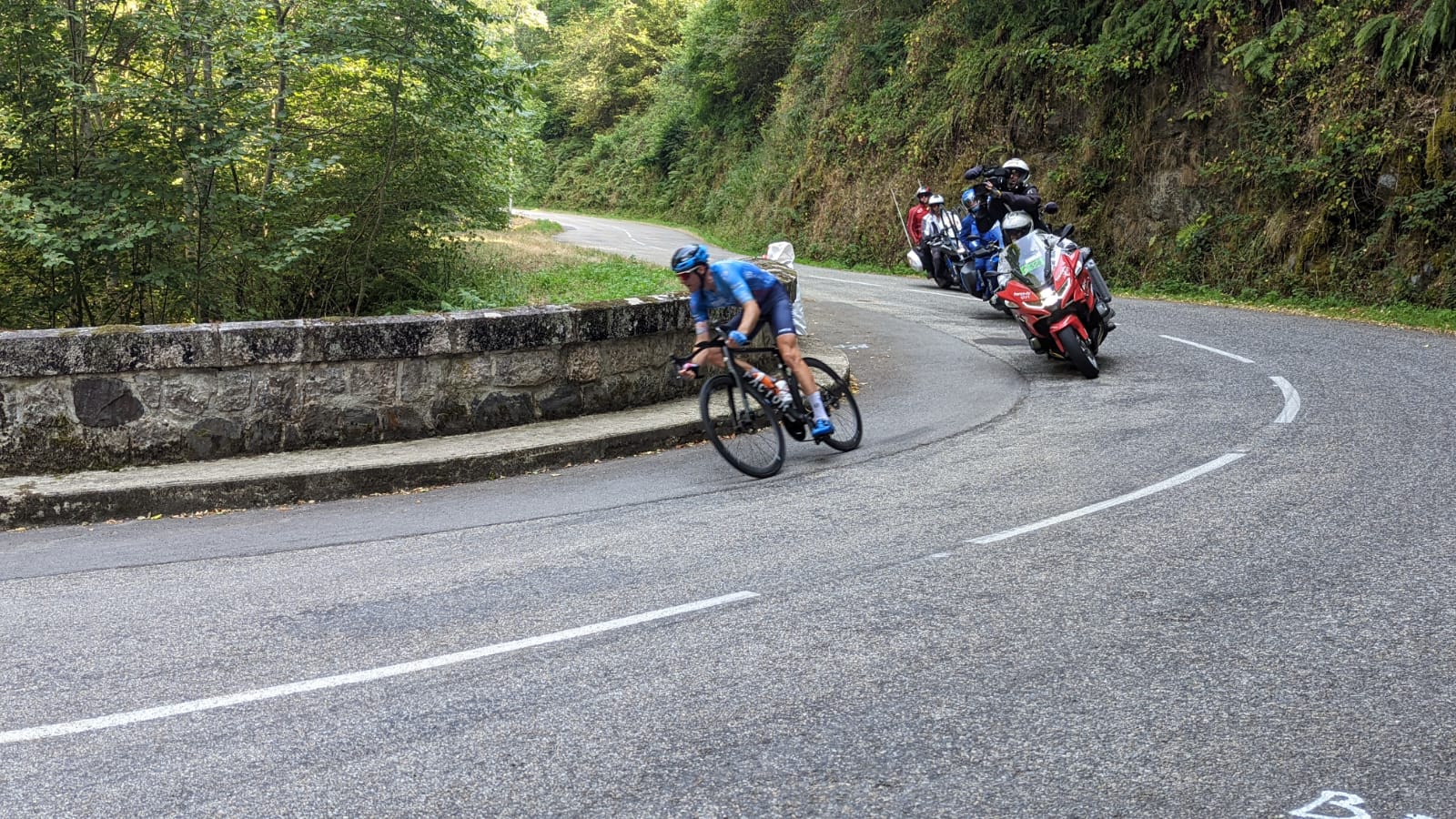
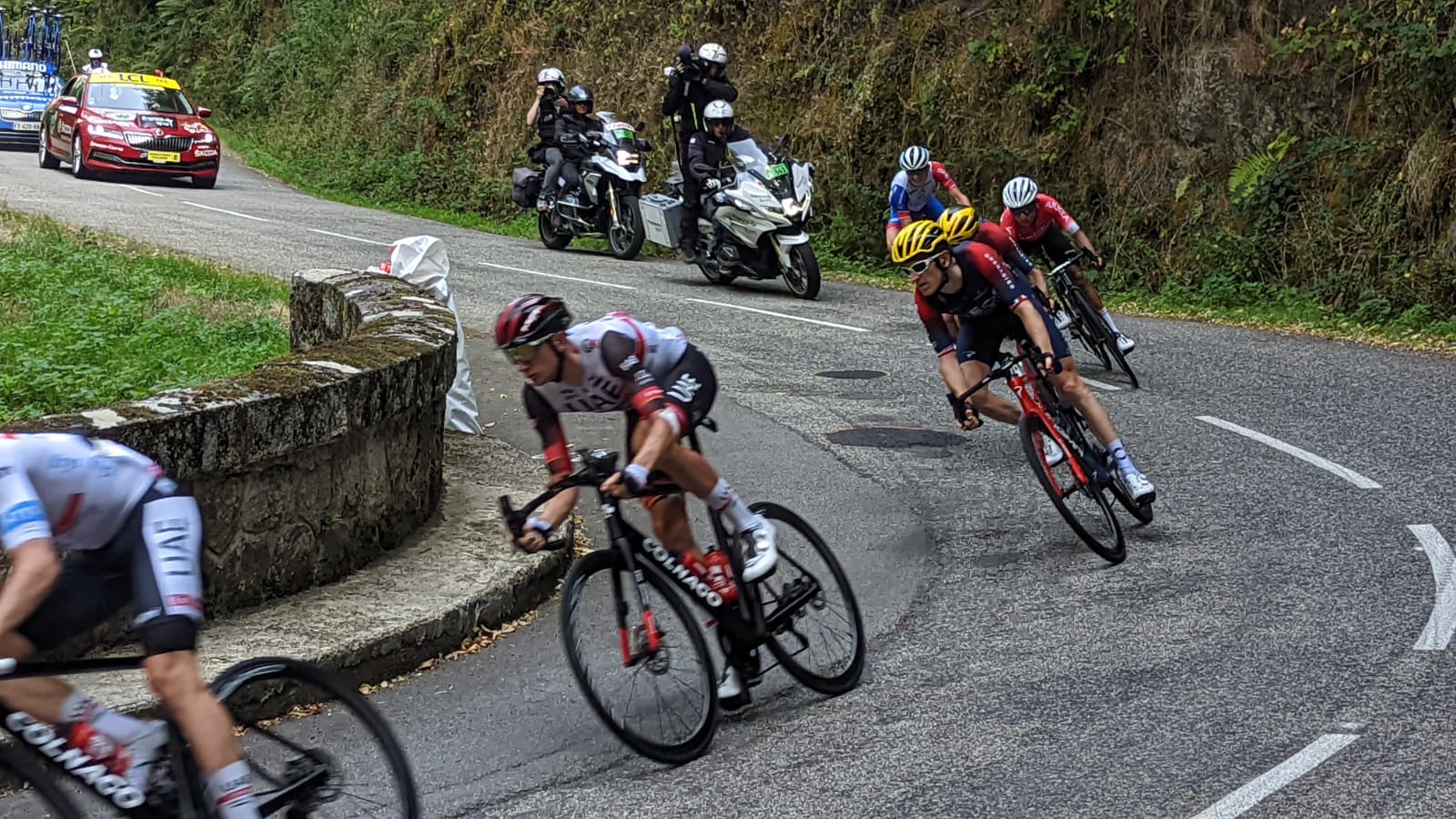
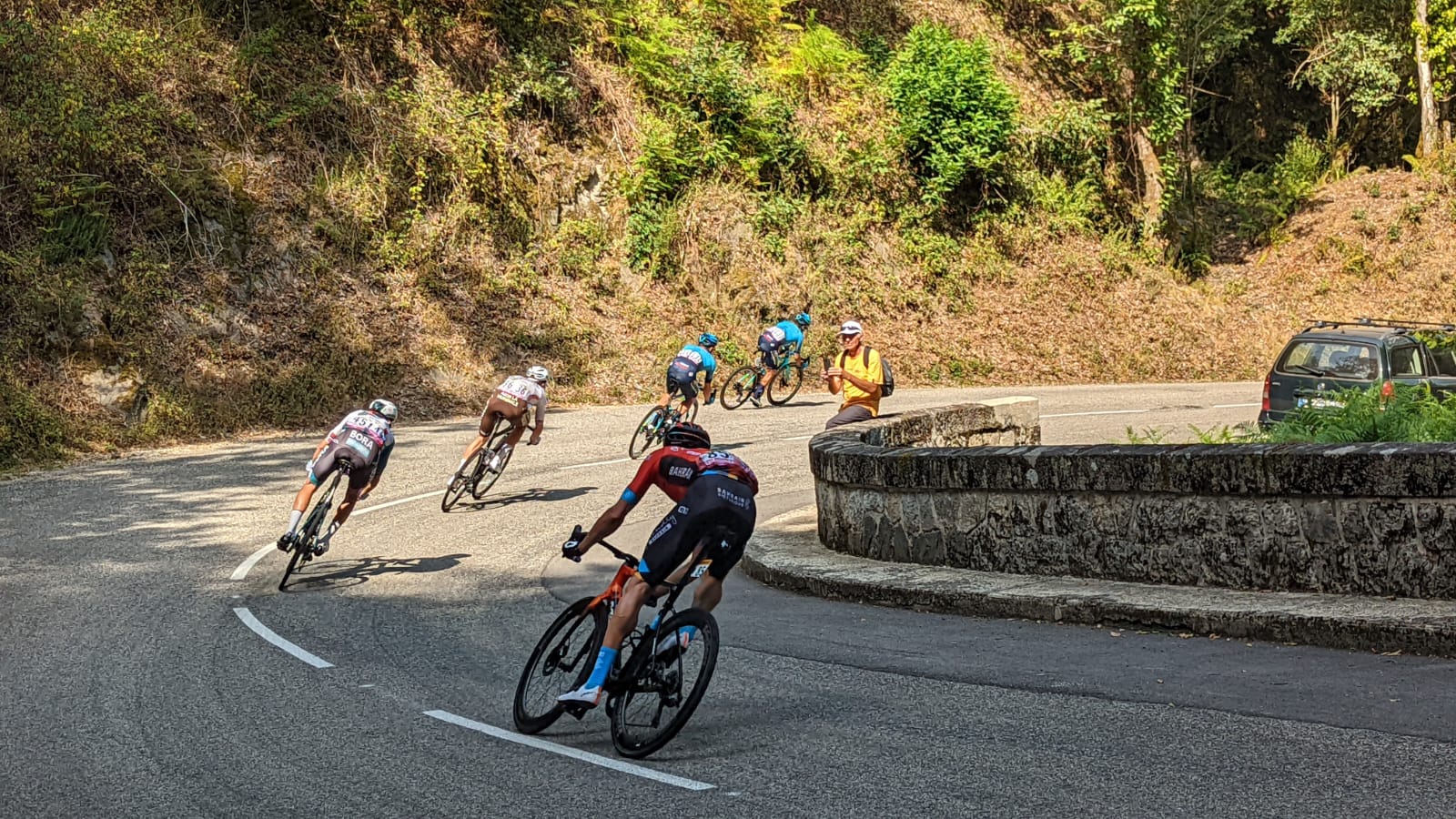
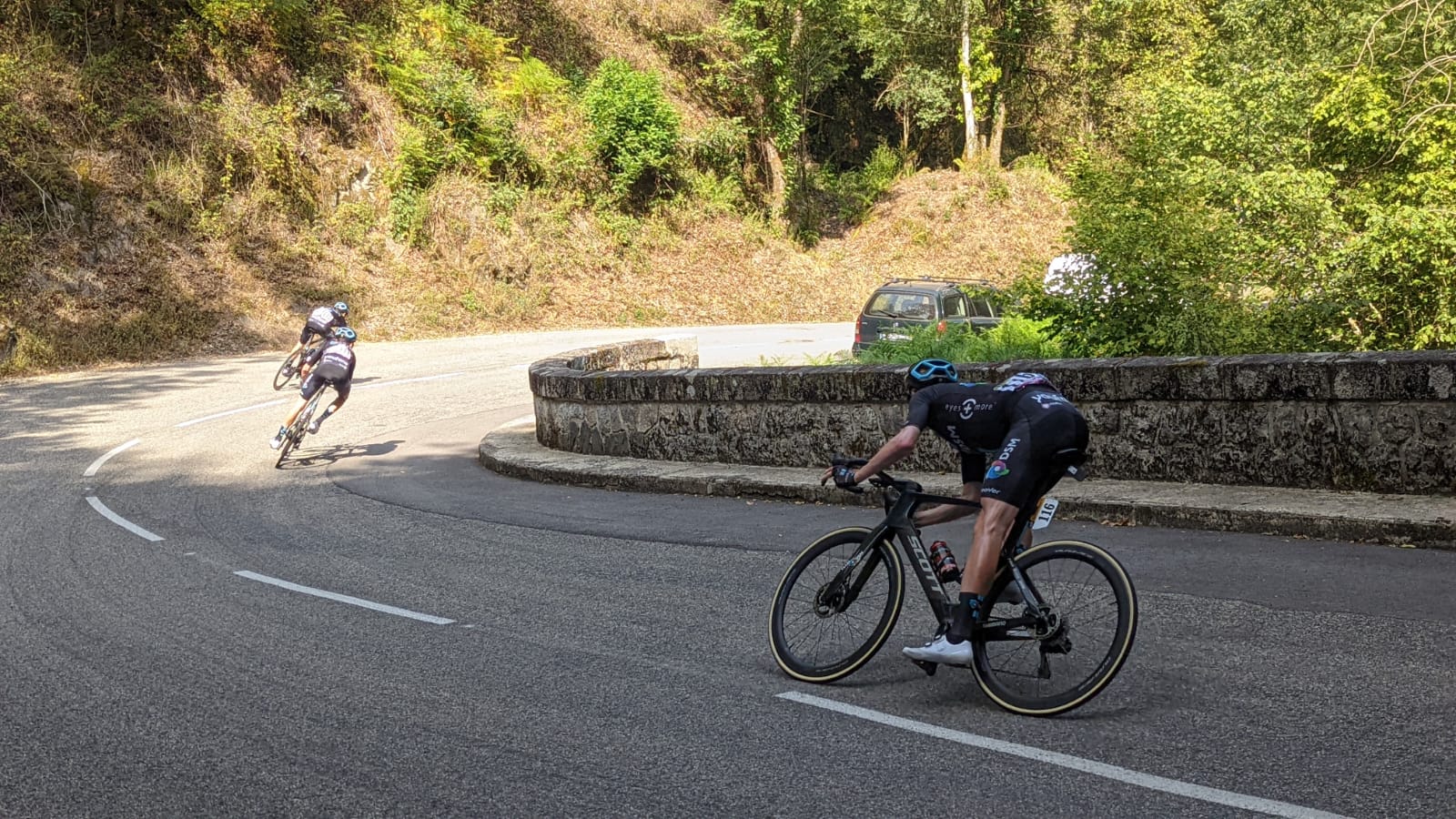
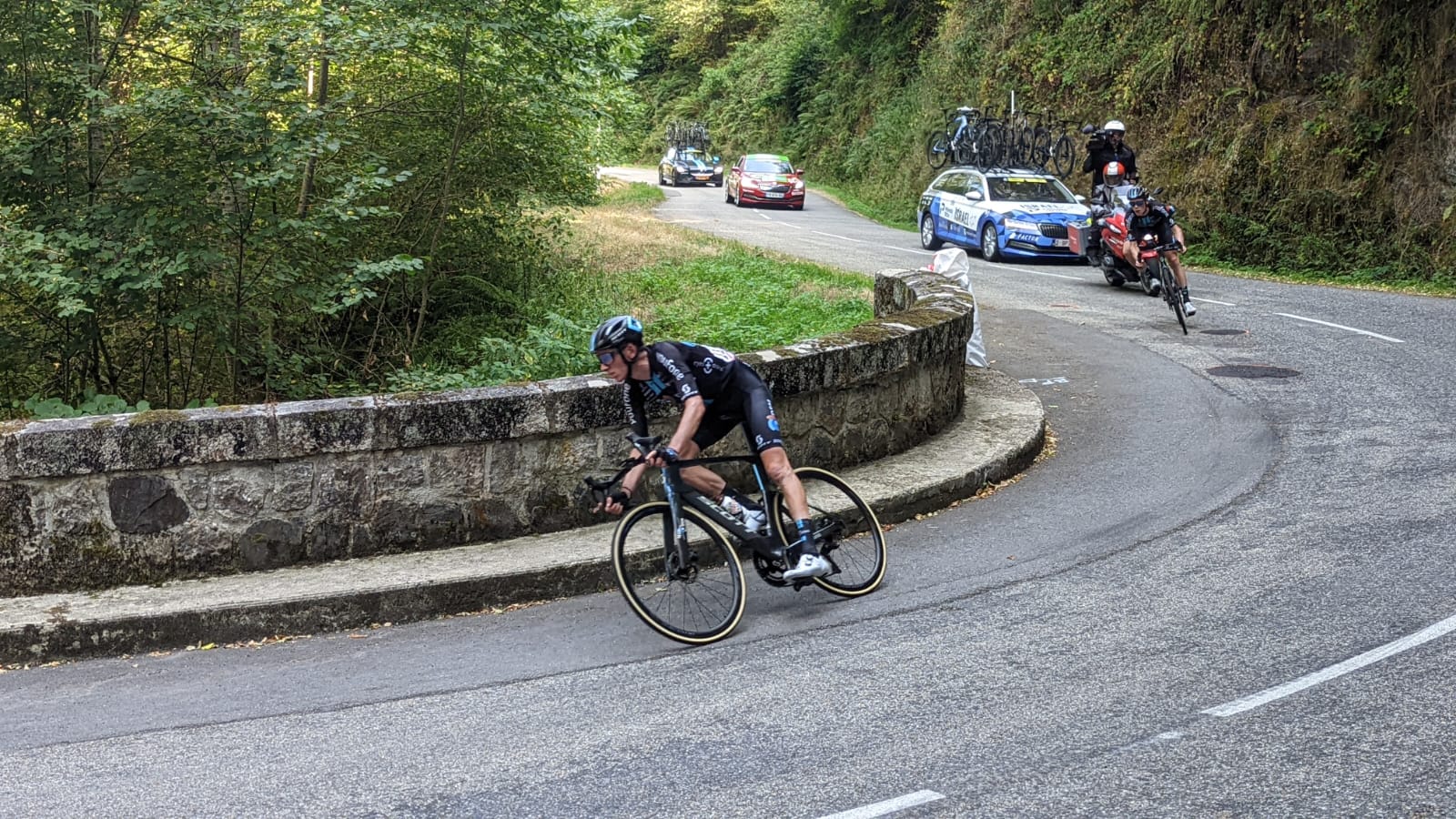
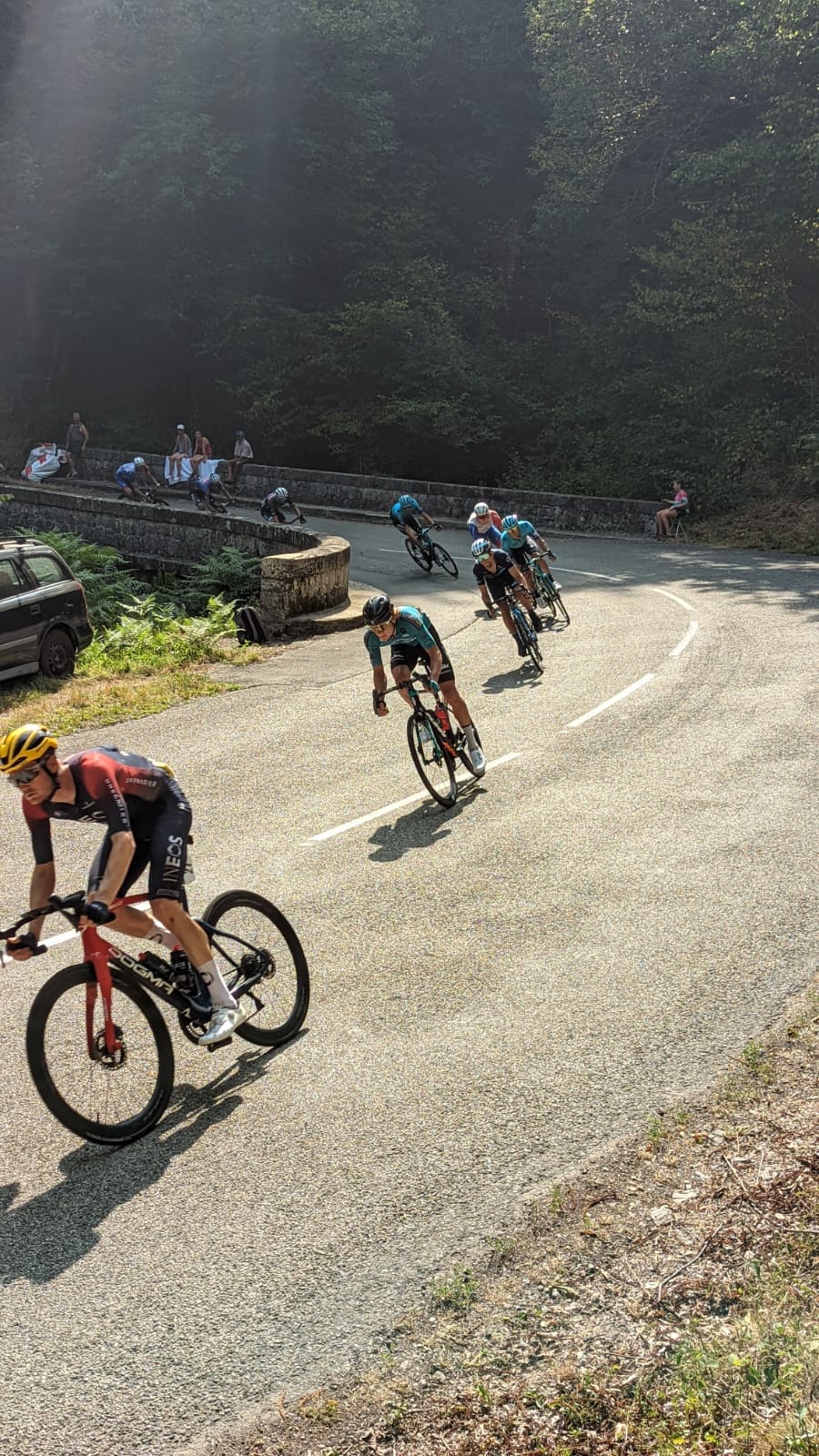
The surface here is the usual Pyrenean grippy, bumpy stone filled tarmac and the workers of the l’Ariege department have been busy patching several spots on the corner entry disrupting what appears to be the ideal line.
Get The Leadout Newsletter
The latest race content, interviews, features, reviews and expert buying guides, direct to your inbox!
There is no phone reception here and Hugo Houle’s arrival is only heralded by the helicopters overhead. With what would turn out to be an emotional stage win in his sights he is fully committed. His finger's nowhere near the brake levers as he steers through the corner. I see him shifting his weight slightly on the saddle through the corner’s exit seemingly to increase the bike’s lean but he runs out wider than you’d think is ideal.
His team-mate Michael Woods takes a similar approach but with his knee out like a Moto GP rider. Jorgenson is third to pass and is admirably undeterred by his trip nearly into a local honey seller’s hut just a few hundred metres up the road on an off-camber corner. He’s still chasing and hits the apex though there’s not quite the same sensation of speed. Jorgenson's assessment is more downbeat: “I had jumped on a new bike, so at that point it's a completely different experience. The brake pads are new, so take a few corners to bed in. You don't break as fast the first few times, which is really scary."
Continuing further down the mountain he says: “There was a huge turn at 150m to go and I didn't have any confidence in my tyres at that point.”
Back on my corner, Valentin Madouas leads the Groupama-FDJ chase and sits super low on his bike, elbows bent generously, squeezing a little pedal rev between the corners two apexes. I’d wager he’s ridden this corner before, or at least enough like it to know how to string them together and does a better job than most of hitting the second apex to carry that extra pedal revolution of speed down the mountain. His team-mate Michael Storer takes a wider line and has to put in a couple of powerful turns of the cranks out of the second apex to stay in touch
By now a pattern is emerging. The most comfortable keep their fingers away from the brakes on turn in and seem to have picked their line really early skirting the tarmac patches that signal danger to an errant front wheel.
In sync
The GC group is led by Wout Van Aert (Jumbo-Visma), clearly more concerned with hitting a balance between safety and speed. No-one looks troubled and what’s most notable is its uniformity. There is minimal deviation from the line the Belgian sets. Yellow jersey wearer Jonas Vingegaard shades a little wider, a little more cautious, Tadej Pogacar takes a few inches wider on entry to get a marginally more aggressive line but that’s it; mostly they follow in perfect formation.
The same cannot be said for the rest of the peloton. Dylan Teuns (Bahrain Victorious) gets scarily close to the apex and the stone wall that awaits there, Adam Yates (Ineos Grenadiers) wrestles with a warped disc, and a Cofidis rider gets out of shape in a latter group and goes way too deep and nearly knocks a Bora-Hansgrohe rider off. Meanwhile, Fred Wright (Bahrain Victorious) drops his chain on the bumps and AG2R’s DS stops to help him.
The DSM trio of Romain Bardet, Adreas Leknessund and Chris Hamilton are all over the place. Bardet, perhaps mulling his tumble down the GC, sits second wheel and looks relaxed tracking Van Aert’s line despite the Belgian being far out of sight down the road but his two team-mates struggle in different ways. Hamilton seems overly aggressive entering at warp speed and running very wide on the exit while Leknessund is timid, struggling to maintain touch with his team-mates and sprinting out of the corner.
The further back in the race people are there’s less incentive to take risks, even the sprinters are comfortably inside the time cut this day, but most still take a moderately aggressive line through the turn just staying well within the limits of traction of roughly 2cm squares of rubber.
They’re in a comfort zone that, Jorgenson recalls, requires a journey to reach following a crash. “The day after [a crash] you get back on your bike and you get back into peloton and start figuring out the limits of your of your tires once again… That crash, I know I was taking a lot of risks. So it's not like a normal descent and I still have the confidence from before the crash. But a lot of times when you crash and you don't feel like you're taking risks it can take a while to reset.”
Watching from the roadside what can we learn from experiencing this often unseen aspect of racing? Well, there are the obvious things like the way the best shift their weight in the saddle to the outside of the bike, their low and relaxed body language and the confidence to stay away from the brakes.
But perhaps the most instructive is that there’s a wider variety of descending abilities and styles than you might expect in the professional ranks and that even through one corner there are plenty of examples of people getting it wrong. There is plenty of human frailty on display and I don’t just mean through the tears in Jorgenson’s shorts.
And as Jorgenson makes clear, just like us, when it all goes south they have to pick themselves up ,dust themselves off and rebuild that confidence again. They just don’t have to buy themselves new bibs as well.

Thank you for reading 20 articles this month* Join now for unlimited access
Enjoy your first month for just £1 / $1 / €1
*Read 5 free articles per month without a subscription

Join now for unlimited access
Try first month for just £1 / $1 / €1
Having trained as a journalist at Cardiff University I spent eight years working as a business journalist covering everything from social care, to construction to the legal profession and riding my bike at the weekends and evenings. When a friend told me Cycling Weekly was looking for a news editor, I didn't give myself much chance of landing the role, but I did and joined the publication in 2016. Since then I've covered Tours de France, World Championships, hour records, spring classics and races in the Middle East. On top of that, since becoming features editor in 2017 I've also been lucky enough to get myself sent to ride my bike for magazine pieces in Portugal and across the UK. They've all been fun but I have an enduring passion for covering the national track championships. It might not be the most glamorous but it's got a real community feeling to it.
-
 'It took everything' - Puck Pieterse outclimbs Demi Vollering to win La Flèche Wallonne
'It took everything' - Puck Pieterse outclimbs Demi Vollering to win La Flèche WallonneDutch 22-year-old shows Classics pedigree with first one-day victory
By Tom Davidson
-
 Tadej Pogačar flies to dominant victory at La Flèche Wallonne
Tadej Pogačar flies to dominant victory at La Flèche WallonneSlovenian takes second win at Belgian classic ahead of Kévin Vauquelin and Tom Pidcock
By Tom Thewlis
-
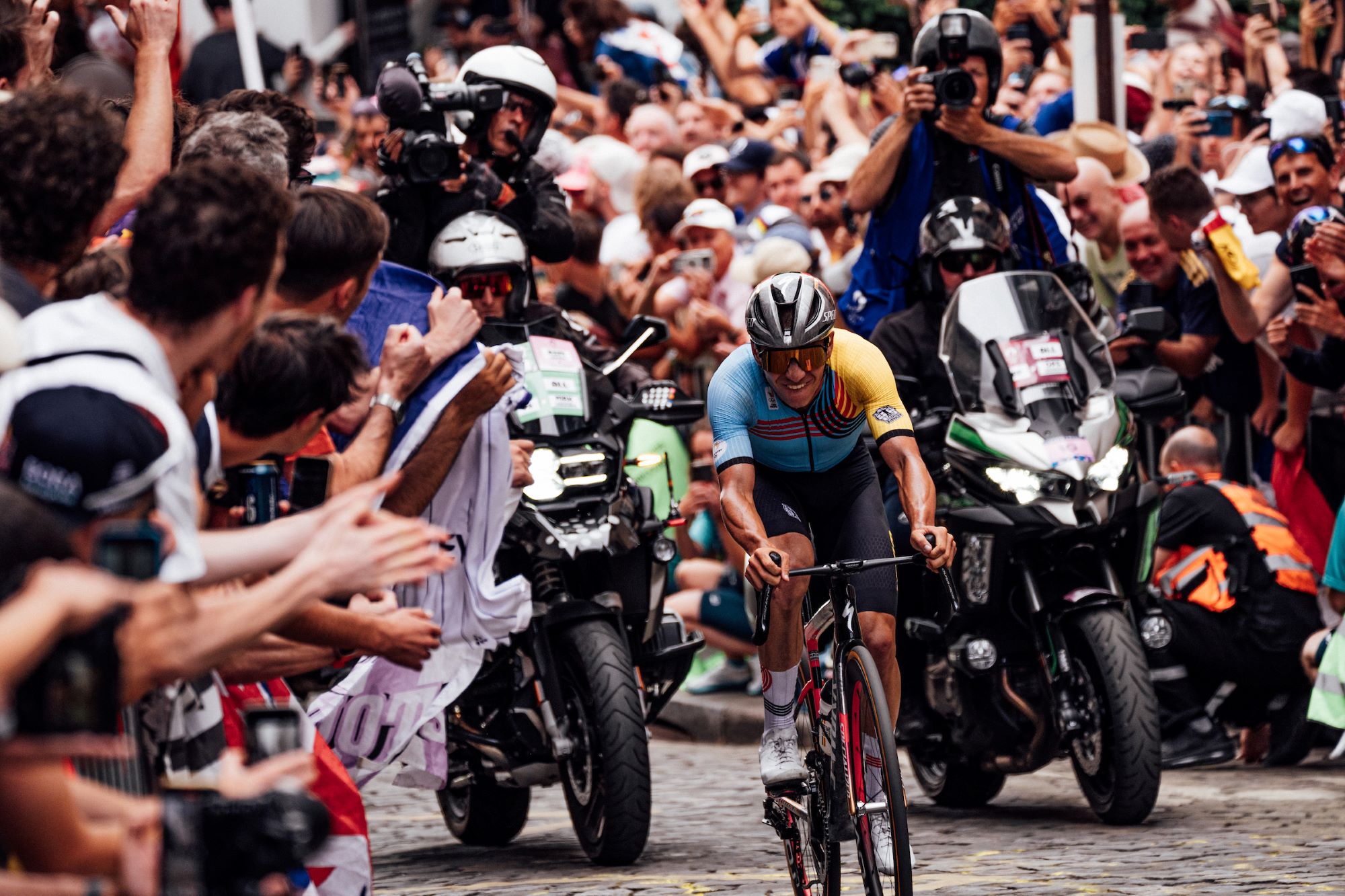 Remco Evenepoel hails end of 'dark period' and announces racing return
Remco Evenepoel hails end of 'dark period' and announces racing returnOlympic champion says comeback from training crash has been 'the hardest battle of my life so far'
By Tom Thewlis
-
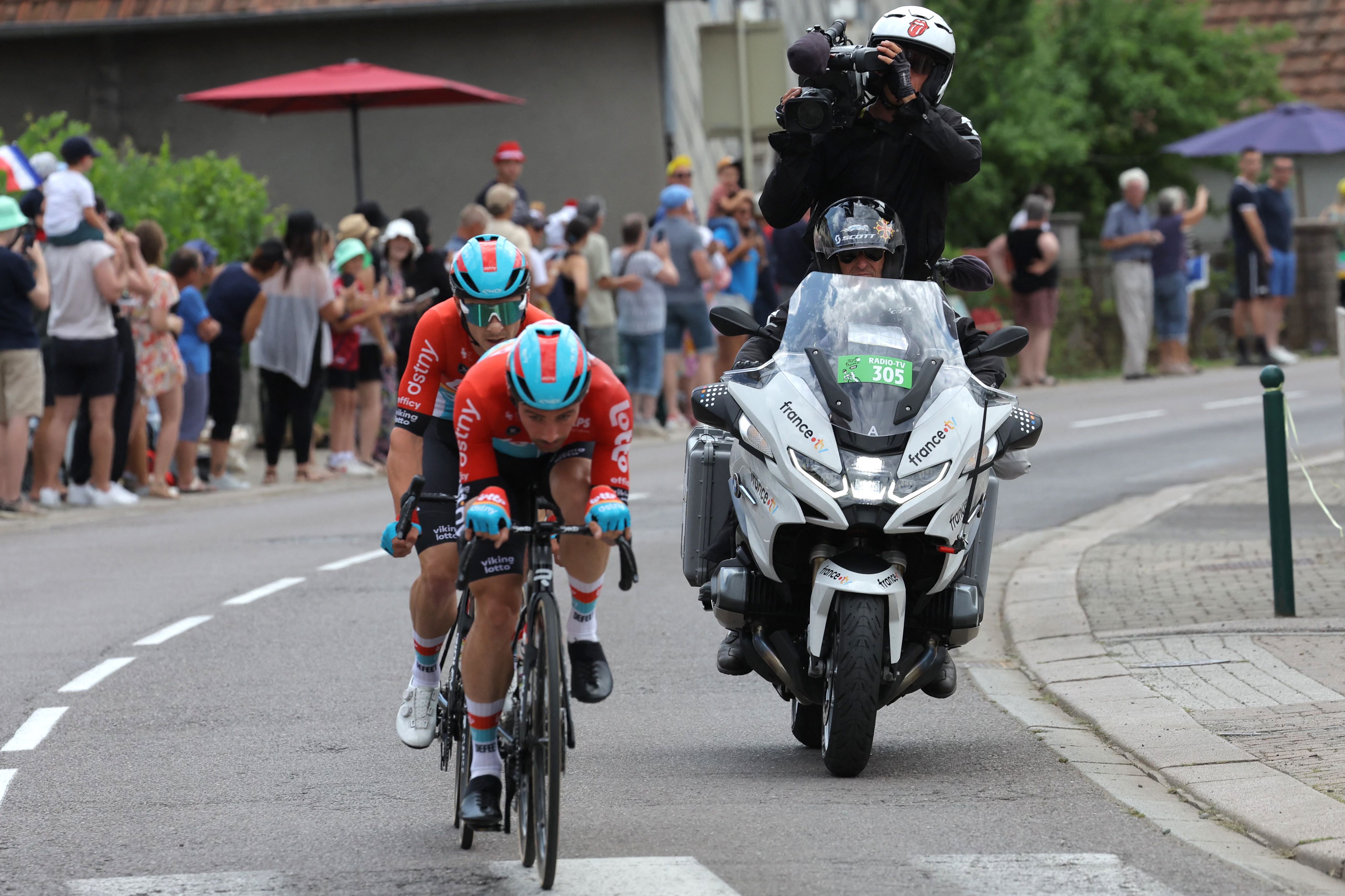 'We need to keep the biggest race in the sport free' - Petition calling for Tour de France to remain on free-to-air television reaches 10,000 signatures
'We need to keep the biggest race in the sport free' - Petition calling for Tour de France to remain on free-to-air television reaches 10,000 signaturesAs things stand, the Tour will be not be free to watch in 2026, but a petition is seeking to change the way it is categorised by the UK government
By Adam Becket
-
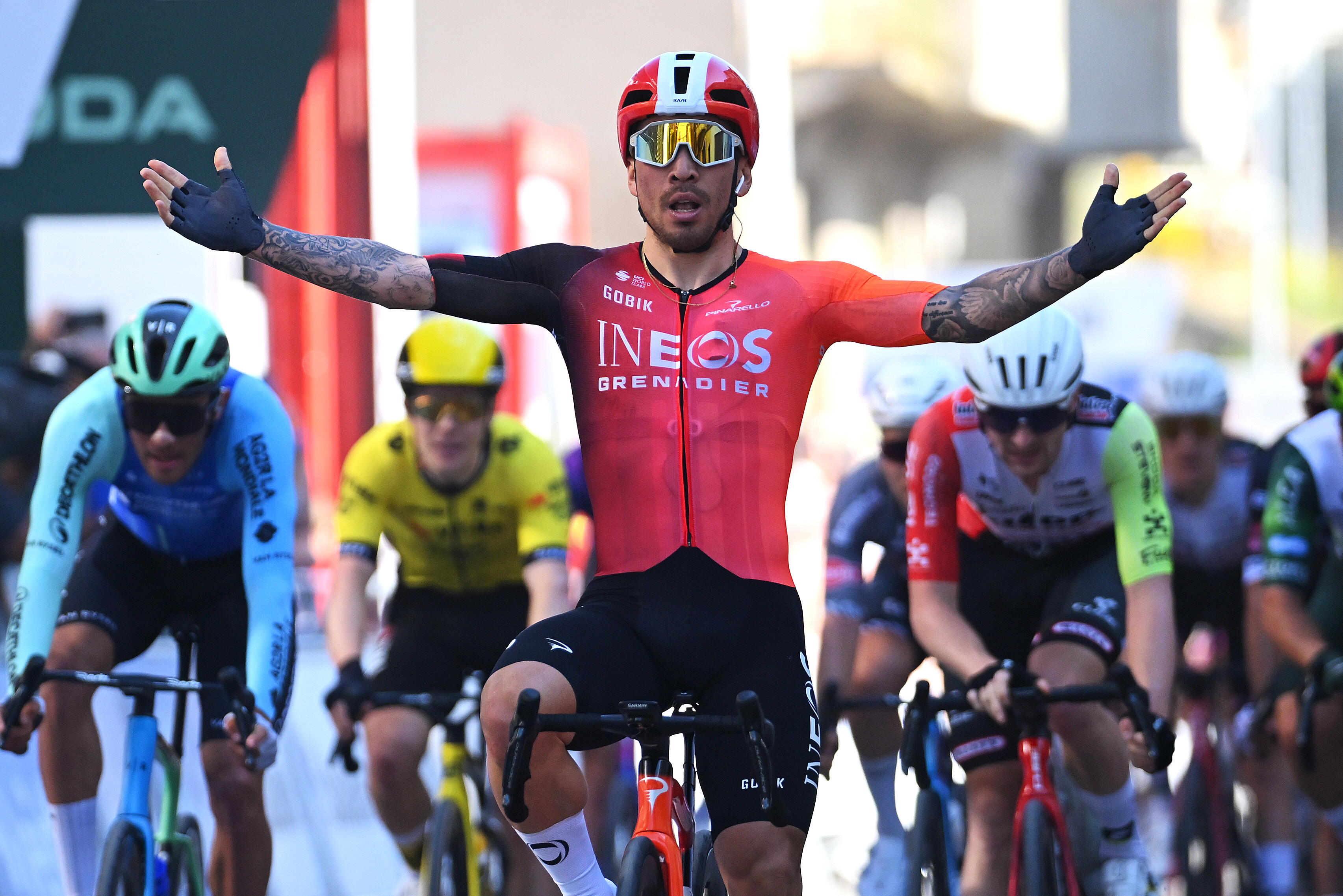 Could Caleb Ewan be Ineos Grenadiers' first Tour de France sprinter since Mark Cavendish? 'That's my goal'
Could Caleb Ewan be Ineos Grenadiers' first Tour de France sprinter since Mark Cavendish? 'That's my goal'"All I can do is try to win as much as possible and prove that I deserve to be there," says Australian
By Tom Davidson
-
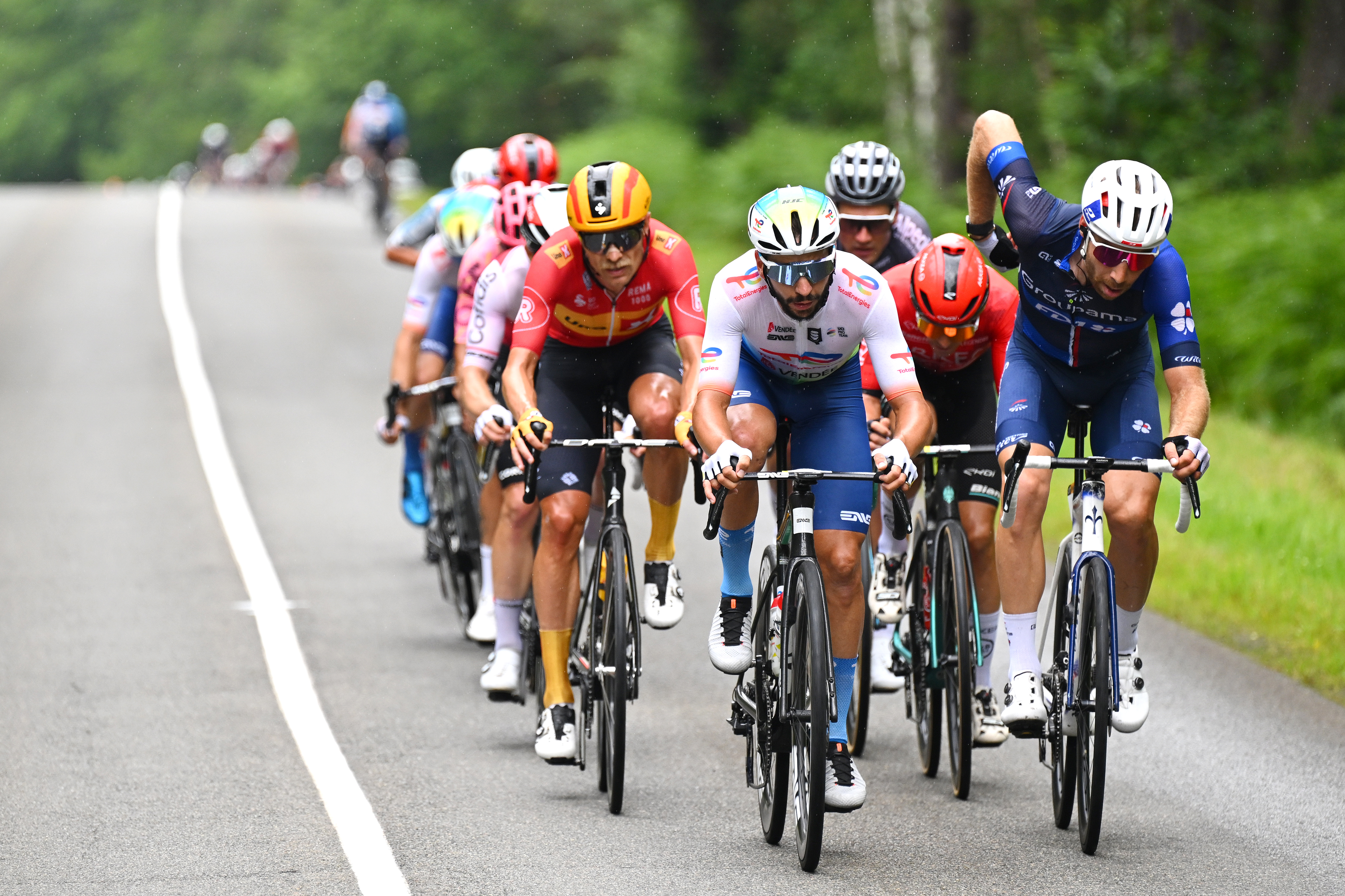 Extra wildcard team approved for Tour de France, Giro d'Italia and Vuelta a España
Extra wildcard team approved for Tour de France, Giro d'Italia and Vuelta a EspañaNumber of teams to increase from 22 to 23 at men's Grand Tours
By Tom Davidson
-
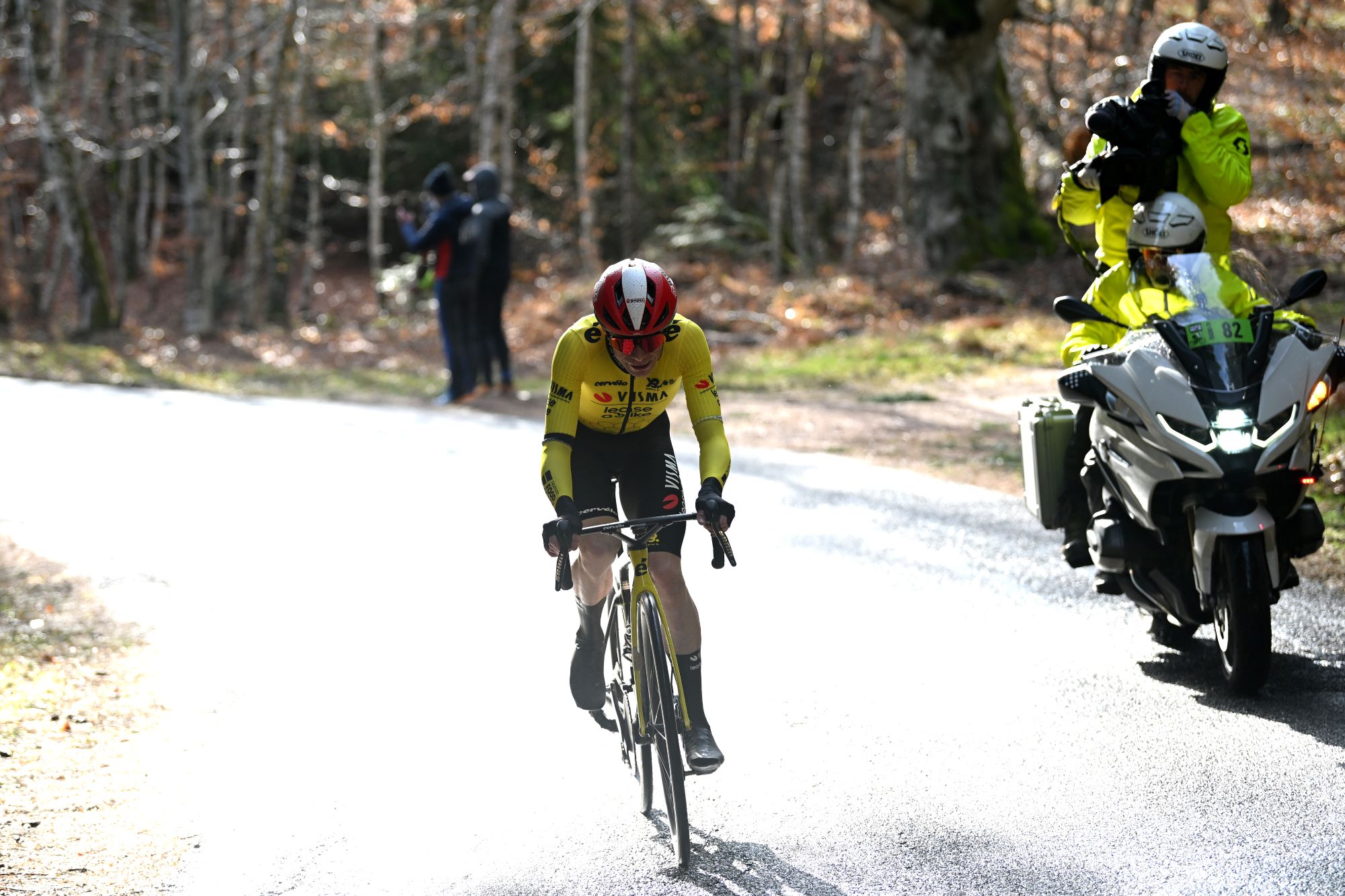 Jonas Vingegaard out of Volta a Catalunya after Paris-Nice crash
Jonas Vingegaard out of Volta a Catalunya after Paris-Nice crashVisma-Lease a Bike say two-time Tour de France winner needs more time to recover from wrist injury sustained in France last week
By Tom Thewlis
-
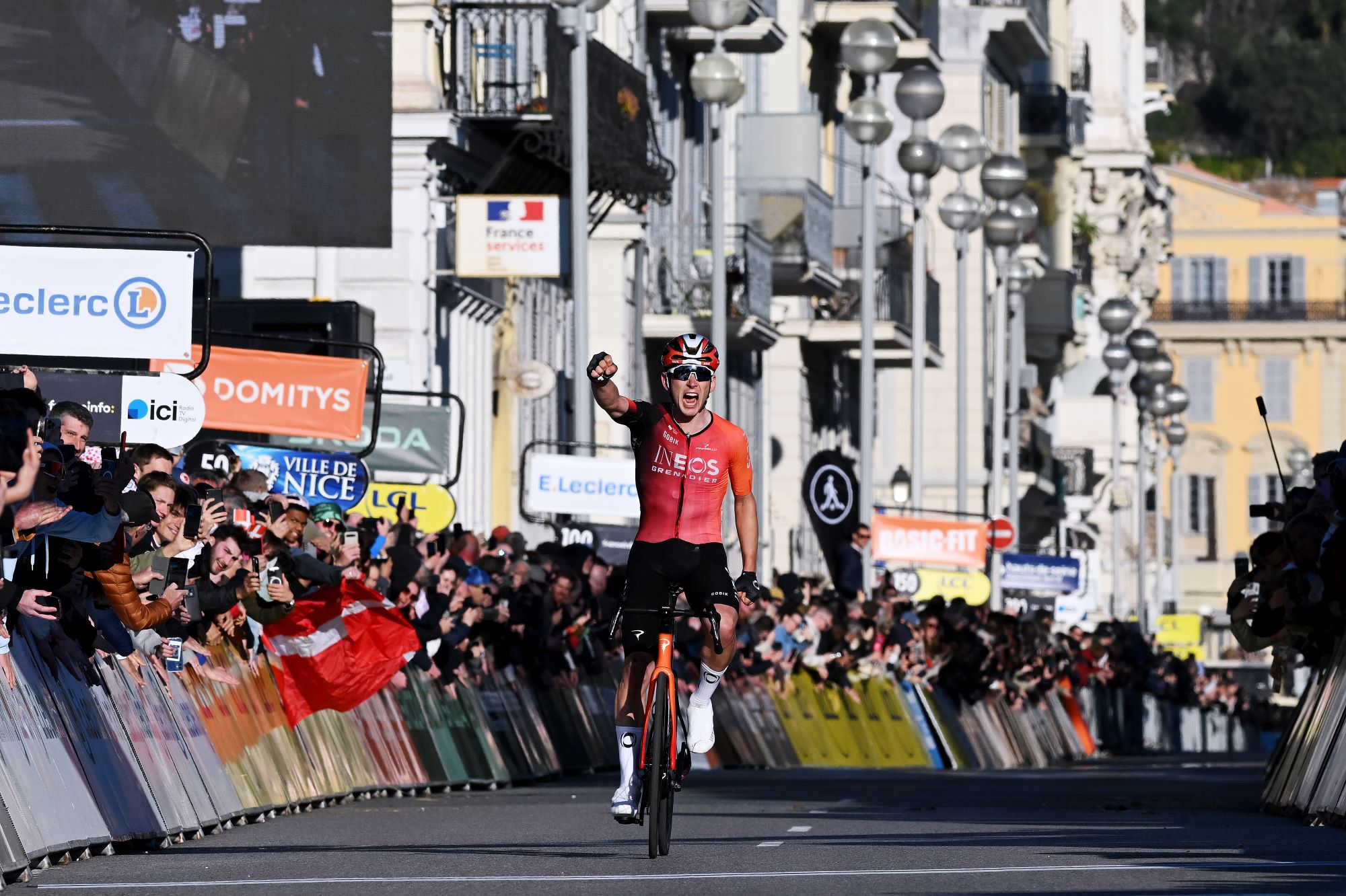 'We've all got a little bit extra in us this year' - Ineos Grenadiers recapture 'fighting spirit' with aggressive Paris-Nice display
'We've all got a little bit extra in us this year' - Ineos Grenadiers recapture 'fighting spirit' with aggressive Paris-Nice displayBritish team continue to put tumultuous 2024 behind them with momentum and a new found mentality
By Tom Thewlis
-
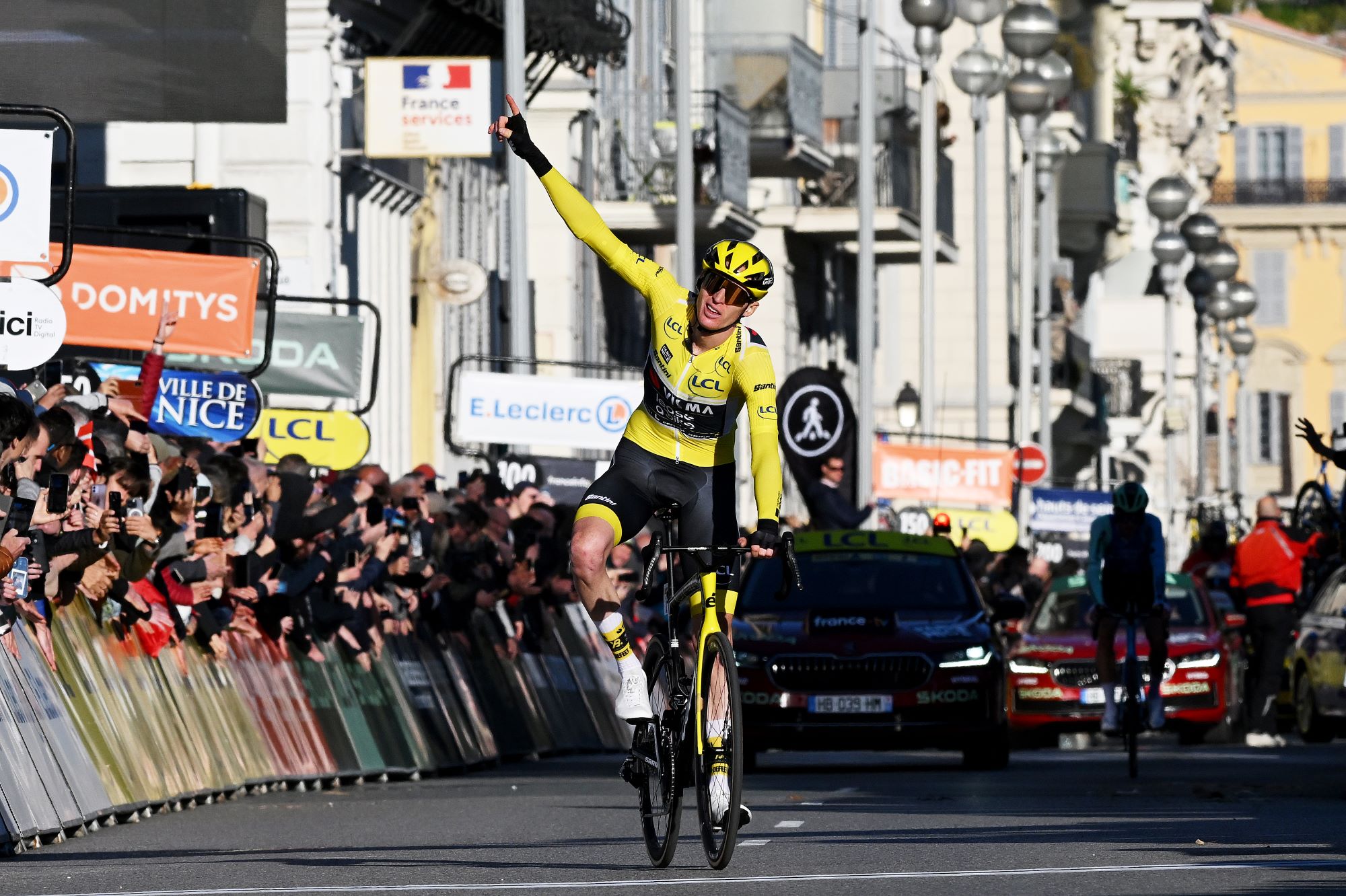 Matteo Jorgenson aiming to 'set the bar higher' and target a Grand Tour after securing second Paris-Nice title
Matteo Jorgenson aiming to 'set the bar higher' and target a Grand Tour after securing second Paris-Nice titleAmerican explained that targeting a win in one of the sport's biggest three-week races was now the logical next step in his career
By Tom Thewlis
-
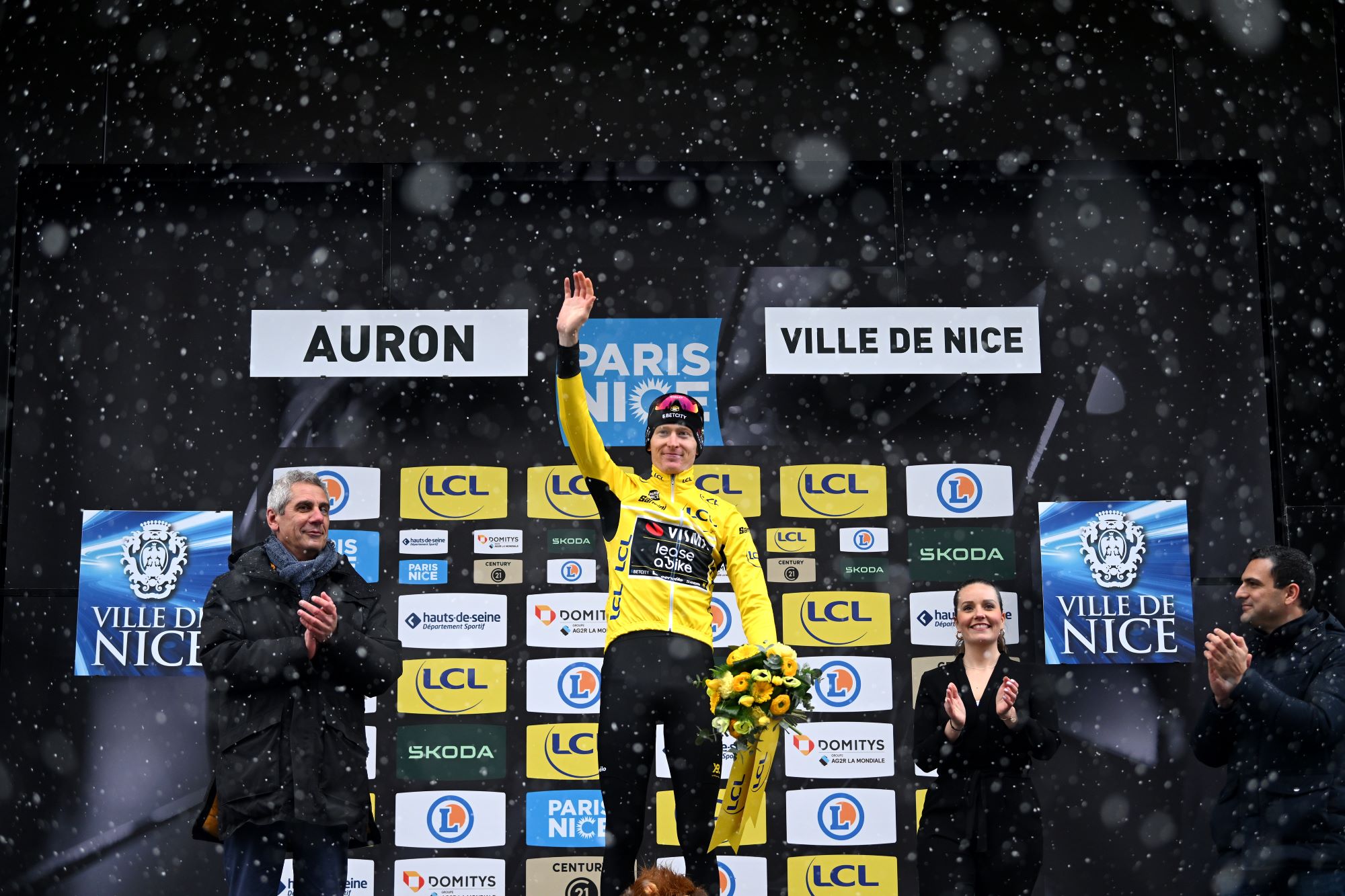 Matteo Jorgenson rules out Tour de France leadership after Jonas Vingegaard's withdrawal from Paris-Nice
Matteo Jorgenson rules out Tour de France leadership after Jonas Vingegaard's withdrawal from Paris-NiceThe American is on the cusp of a second consecutive victory at the Race to the Sun
By Tom Thewlis